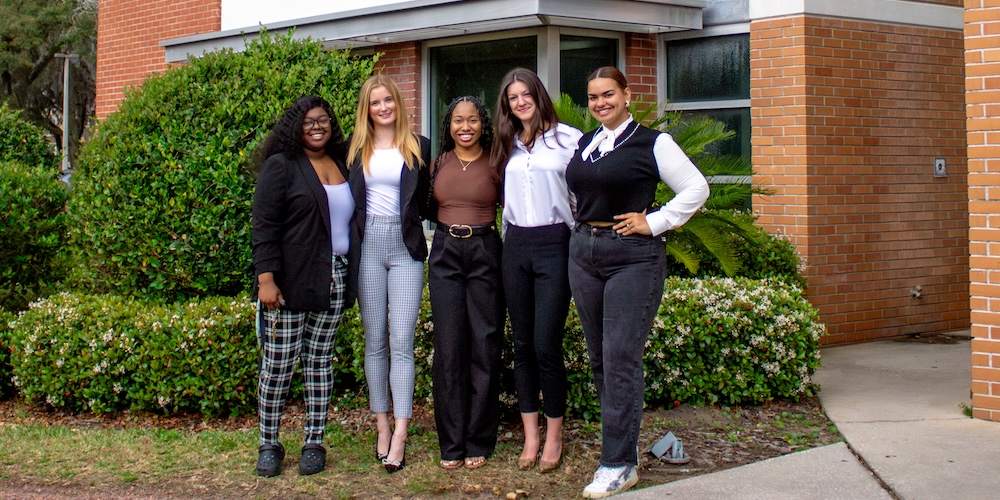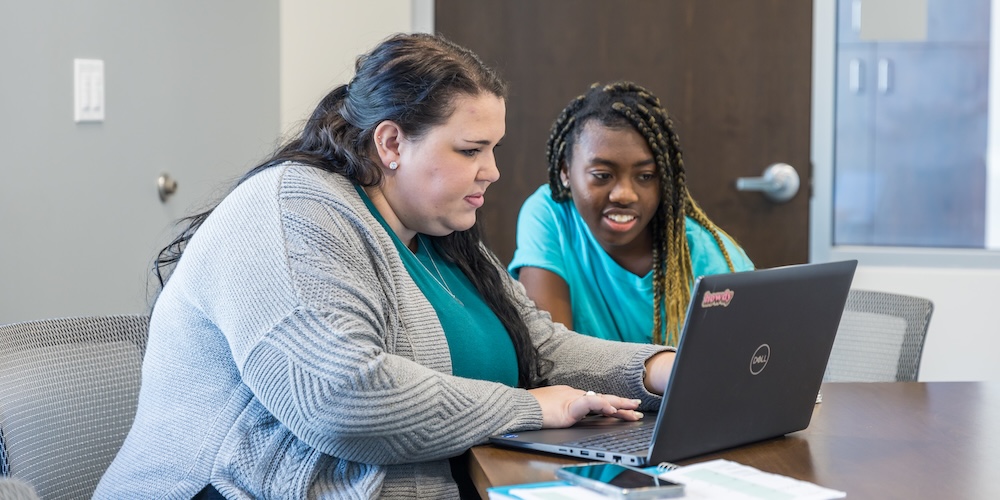As Jacksonville University expands its learning and career opportunities in science, technology, engineering and math, it is pleased to announce the creation of a scholarship program made possible by a grant from the National Science Foundation.
Jacksonville University was recently awarded more than $900,000 by the National Science Foundation to support an initiative designed to help meet the national need for engineers and computer scientists by supporting the retention and graduation of high-achieving, low-income students. The initiative, specifically entitled “Project-based Service Learning and Career-training to Support Graduation and Career Readiness of Engineering and Computing Science Majors,” is being spearheaded by an interdisciplinary team, from the College of Arts and Sciences and the Davis College of Business.
Assistant professor of computing science Dr. Mini Zeng is serving as a principal investigator for the grant. Her fellow principal investigators include professor of biology and marine science Dr. Lee Ann Clements, associate professor of sociology Dr. Laura Atkins, associate professor of education Dr. Steven Davis, associate professor of mechanical engineering Dr. Emre Selvi and assistant professor of computing science Dr. Vivek Shandilya.
“This project was inspired by both national and local needs to increase the number of engineers and computer scientists,” Zeng said. “It was additionally motivated by the need to retain and graduate more high-achieving, low-income students at colleges and universities such as Jacksonville University.”
According to the Bureau of Labor Statistics, demand for STEM fields is growing. “Employment in computer and information technology occupations, in particular, is projected to grow 11% from 2019 to 2029, much faster than the average for all occupations.” However, low-income students are severely underrepresented in STEM. Additionally, the United States Census Bureau reports that while women comprise nearly half of the U.S. workforce, they account for only 27% of STEM workers. The NSF program will help to change that by making it easier for students to pursue higher education and careers in STEM fields.
The five-year project, which will run through 2025, will fund scholarships for 35 full-time engineering and computing science undergraduate students and is part of the NSF Scholarships in Science, Technology, Engineering, and Mathematics Program. The NSF funds U.S. institutions of higher learning that, in turn, implement the S-STEM program and select scholars based on the eligibility requirements described in the S-STEM solicitation.
At Jacksonville University, these S-STEM scholars will receive up to four years of scholarship funding. The program has three specific goals: increasing the enrollment of students in the engineering and computing science majors, particularly among women and underrepresented groups; improving engineering and computing science education by implementing evidence-based project-based-service-learning practices in both classrooms and the learning community; and improving career readiness in terms of both academic readiness and career knowledge/skills for STEM students.
At Jacksonville University, the S-STEM Scholars program will thoughtfully integrate activities to enhance skill development and professional preparation. Drawing from the university’s strengths in experiential learning, the program incorporates participation in service-learning projects that are collaboratively developed by the computing science department, engineering department and service-learning center.
“The community-based projects provide opportunities for the S-STEM scholars to develop skills in teamwork, critical thinking, communication, and collaboration with diverse groups,” Atkins said. “Additionally, these projects encourage the students to learn application of technical skills while giving back to the community.”
In the first round of service-learning projects, beginning in fall 2021, S-STEM scholars will virtually coach robotics teams at local schools. This service-learning initiative will help refine their knowledge and application of computing science and mechanical engineering skills. The service-learning will also provide much-needed support for local schools and role models for younger students considering the pursuit of STEM for their own collegiate experience.
This grant will also provide the S-STEM Scholars with co-curricular support, including a learning community guided by faculty mentors, peer mentors and the interdisciplinary faculty support team. These S-STEM Scholars will also have opportunities to participate in a semester-long career-training course and career workshops offered by Jacksonville University’s Career Resource Center to enhance their career readiness.
On a wider level, the project aims to strengthen Jacksonville University’s connections with local industry to increase internship and employment opportunities for those engineering and computer science students trained at Jacksonville University.
“We think the goal of increasing STEM recruitment and retention to boost the next-generation STEM workforce should be enhanced by improving students’ learning and preparing them for their careers.” Zeng said. “We are excited to work with the S-STEM scholars, increasing their academic readiness, career knowledge, and skills with our well-designed curricular and co-curricular activities.”


